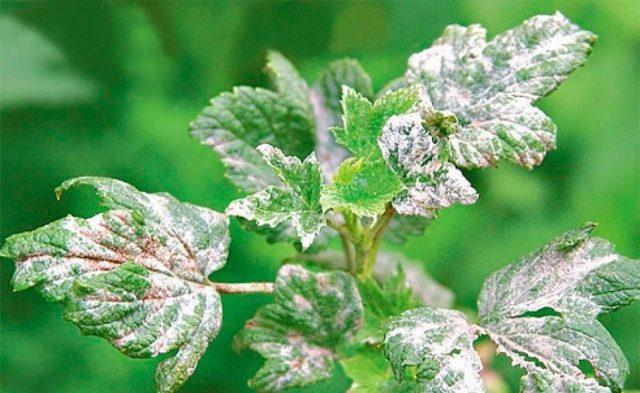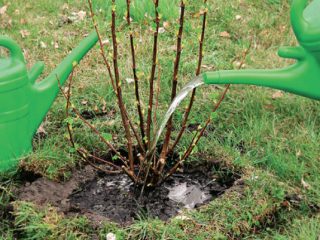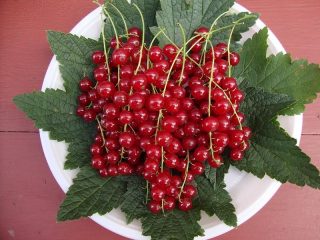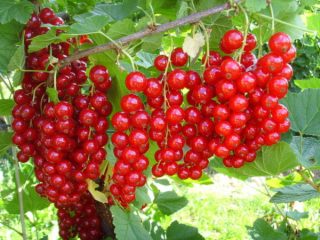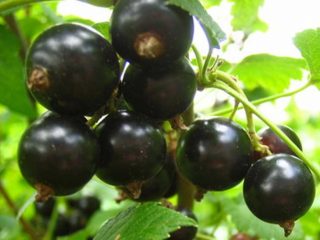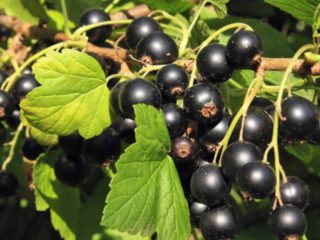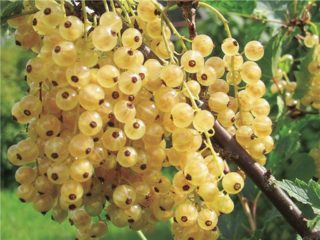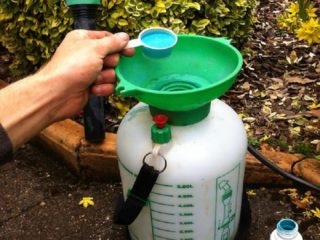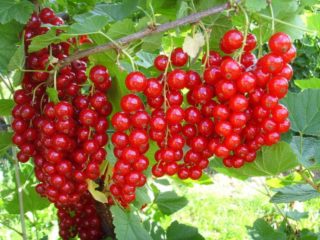Content
Black currant is one of the plant products that are most beneficial to the human body. In terms of the amount of vitamin C, the berry is ahead of citrus fruits and apples. Currant Black Boomer is deservedly considered one of the best varieties in terms of taste. And, what is important in gardening, the culture is unpretentious to growing conditions.
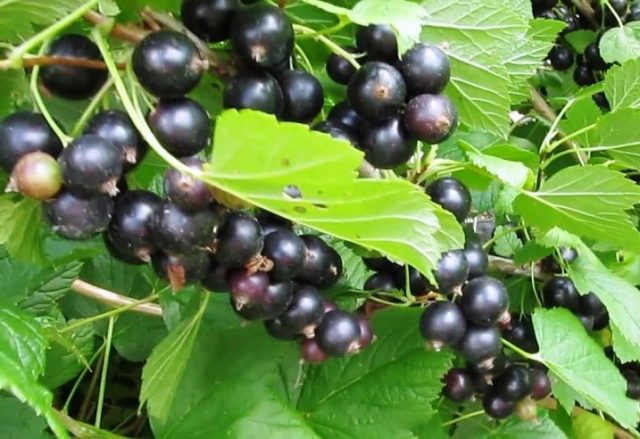
The selection variety Black Boomer is characterized by early harvest formation and a long shelf life of the berries on the bushes
History of selection
Black boomer was bred by the famous Ukrainian botanist Mikhail Uzenkov by crossing the Selechenskaya and Chudesnitsa varieties. It took the scientist 30 years to select a promising species. The fruit crop, whose name in translation from English sounds like “causing excitement,” has high commercial characteristics.
Despite the fact that the Black Boomer variety has undoubted advantages and is popular among owners of personal plots and farm plantations, it has not passed the variety testing process.Due to the lack of practical research and recorded results, the Black Boomer currant species is not included in the Russian State Register.
Description of the currant variety Black Boomer
The berry crop is attractive to gardeners because during the fruiting period the berries do not fall from the bushes for several weeks. Large, ripe clusters are convenient to remove when harvesting.
Bush
Black boomer currant bushes consist of straight, strong branches, compactly located relative to each other. The leaves are rich green in color and have a three-lobed shape.
Berries
Black boomer is distinguished by large berries with smooth, dense skin. The weight of each is 6-7 g. The pulp of the fruit is juicy, the taste is sweet with a pleasant aroma. Clusters of 20-25 berries are shaped like bunches of grapes. The variety belongs to the category of transportable; the berries do not deform when moved and retain their integrity.
Characteristics of the variety
Black boomer currant is a mid-season variety. The garden crop is characterized by a high degree of resistance to adverse weather conditions.
Taste qualities
The fruits of black currant have long been considered a storehouse of health. They contain many substances beneficial to the human body, including:
- vitamins C, P, B, K, A;
- trace elements potassium, iron, phosphorus;
- pectins;
- tannins;
- essential oils.
When fresh, the Black Boomer currant variety serves as a high-quality raw material for preparing fruit drinks, juice, and baking fillings. The beneficial qualities of berries are perfectly preserved by heat treatment, freezing and canning. Jam, jam, compotes, and marshmallows made from fragrant garden berries are among the high-vitamin preparations.
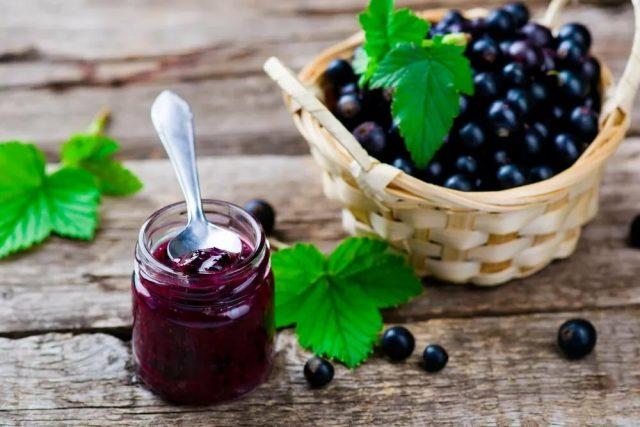
Thanks to the anthocyanin contained in the berries, currants are included in the list of foods that slow down the aging process
Ripening time
In temperate climates, the berries ripen in early July. The harvest takes place over three weeks. Experienced gardeners advise picking fruits in dry weather, since when collected in the rain, their shelf life is noticeably reduced.
Black boomer currant yield
The garden crop is characterized by a high level of productivity: gardeners remove 5-7 kg of berries from a bush. But with careful care, you can harvest up to 10 kg of selected currants. Gardeners like the variety because the fruits do not fall off after ripening, but hang on the branches for a long time.
Frost resistance
Black boomer currant is classified as a winter-hardy variety. It can be cultivated almost throughout the entire territory of Russia, except for the northernmost regions. In regions with characteristic cold winters, in order to prevent frostbite of the plant, it is recommended to cover the bushes with matting or protective film.
Disease resistance
The Black Boomer variety is characterized by a high level of resistance to infectious diseases and pests.However, in the process of caring for shrubs, it is necessary to monitor their condition. Berry crops can be affected:
- fungus;
The appearance of fungus is indicated by yellow spots on the leaves and growths on the branches
- white rot, the growth of which resembles dirty cotton wool;
White rot leads to the death of parts of the bush
- powdery mildew;
Powdery mildew appears as a whitish coating
Not only infections pose a threat to plant health, but also certain types of insects. Among the pests dangerous to the variety are:
- weevil and currant borer bugs;
- glassworm and sawfly caterpillars.
Both traditional preparations (Bordeaux mixture, Alirin B solution) and new products from the chemical industry are effective in eliminating hazardous factors. Measures aimed at eliminating the infection include pruning branches, removing and burning damaged foliage.
Advantages and disadvantages
The hybrid form Black Boomer is characterized by increased productivity and high taste. Gardeners who cultivate berries are attracted by the possibility of getting an early harvest.
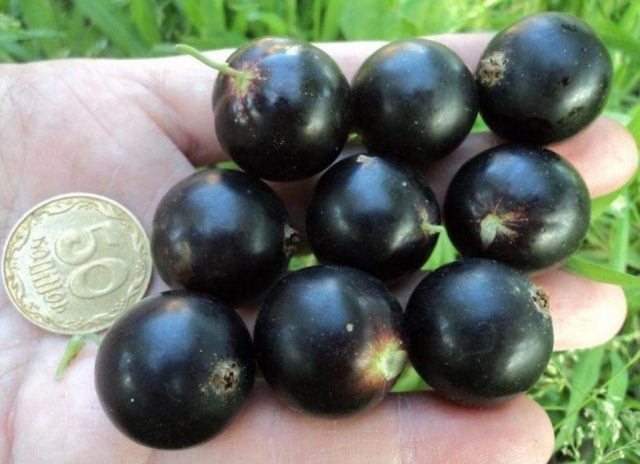
The Black Boomer variety is distinguished by its large fruit size, compactly collected in a cluster
Pros:
- uniform fruiting - the berries ripen almost at the same time, and even when overripe they hang in clusters on the branches for a long time;
- large fruits;
- resistance to infections and pests;
- ability to bear fruit several times a season.
Minuses:
- a bountiful harvest causes branches to ground;
- there is a risk of loss of taste in extreme heat;
- berries may fall off in dry, hot summers.
How to plant
About a month and a half before planting currants, organic fertilizer should be added to the soil. Manure, peat or compost can be used as top dressing. Later, deep digging of the earth is carried out.
Before planting seedlings, it is necessary to inspect the area intended for growing currants. The soil must be cleared of weeds; wheatgrass must be removed first.
Young plants are placed at a distance of 1.5-2 m. Compliance with the recommended intervals between seedlings is a necessary condition for adequate nutrition of the berry crop. Among other things, if mature bushes do not close, they are easier to care for.
Planting pits are prepared in advance. Their optimal depth should be 35-40 cm, width 50-60 cm.
Care instructions
A few days after planting the seedlings, pruning is organized. In subsequent years, damaged branches, double leaves and inflorescences are removed in early spring.
Watering Black Boomer currant plantings is recommended as needed: if there is a lot of precipitation in the spring, then additional moisture is not required. But in dry weather conditions, regular irrigation is necessary.The crop needs abundant watering: approximately 1.5 buckets per bush.
After harvesting, the soil under the plantings is loosened and fertilized with mixtures containing potassium. In the fall, pruning is done, eliminating damaged shoots and weak shoots. To preserve the roots from exposure to cold, mulching is carried out.
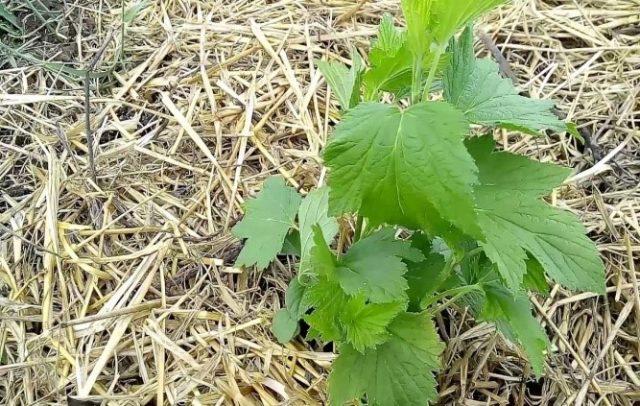
Mulching with sawdust, straw, peat or compost protects the plant from drying out in the heat and from freezing in the cold.
Ideally, a mature bush should consist of 15 healthy branches with viable buds. Shoots that are 6-8 years old are subject to annual pruning. It is always necessary to leave a few fresh shoots.
Conclusion
Black boomer currants produce a bountiful harvest, provided that all agrotechnical measures are followed in the process of caring for the crop. Compliance with the basic rules of cultivation guarantees the production of berries with excellent taste.
Reviews from gardeners about Black Boomer currants


